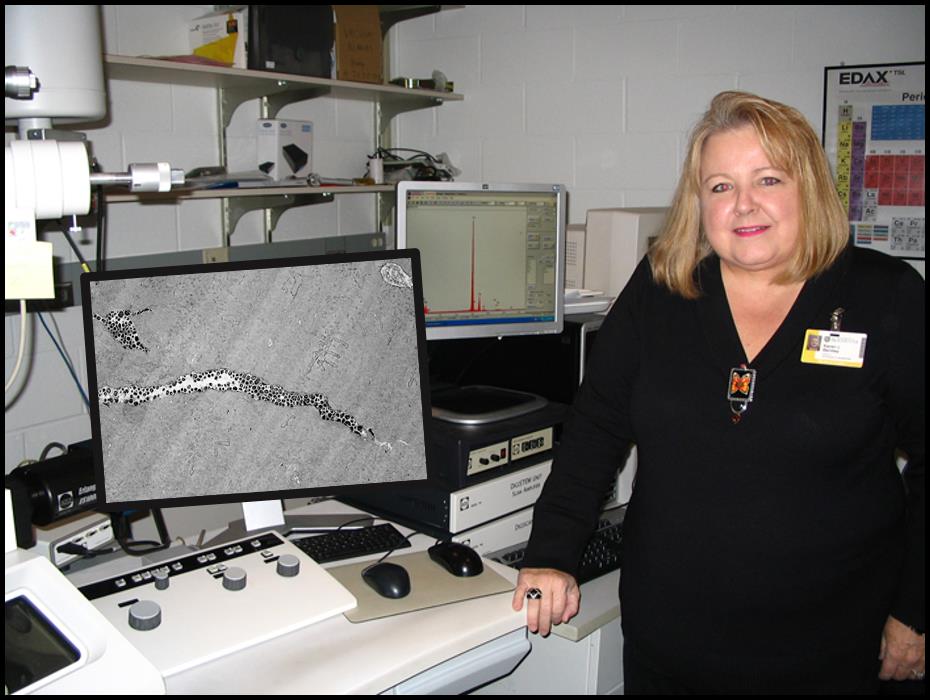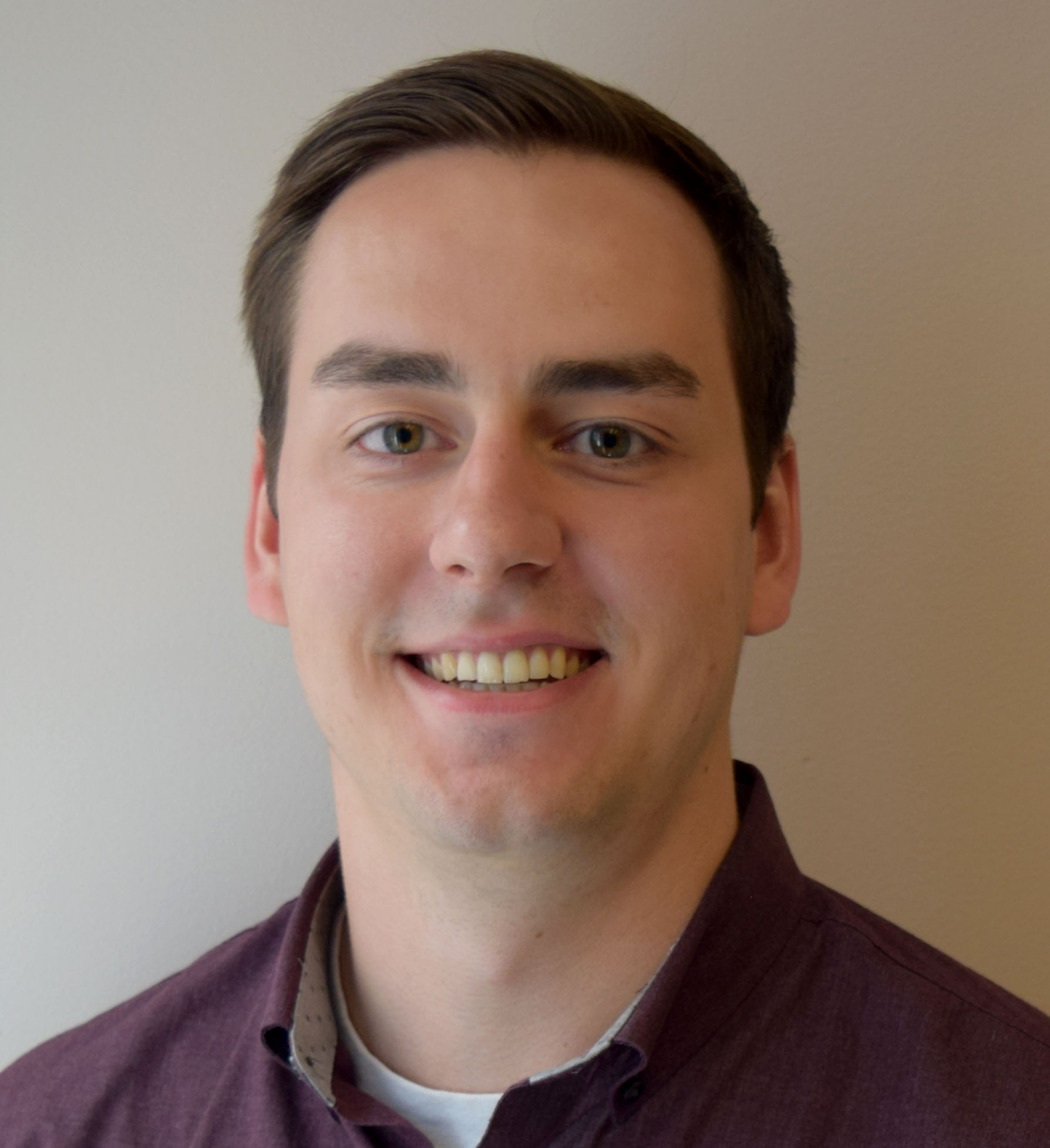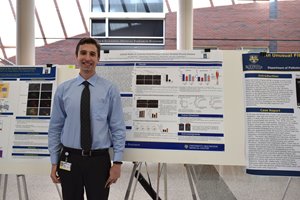Three Faculty Share What Inspires Them to 'Boldly Go Where No One Has Gone Before'
This year, three of our full-time faculty were promoted to associate professor, which is the first big step in their advancement in the world of academia. It’s a milestone marking their early accomplishments, signaling that they have found their academic groove.
As many know, finding your stride can take years of trial and error. In pathology especially, it’s a demanding balancing act for faculty who wear clinical and academic hats, no matter their level of seniority.
What do they all have in common? Curiosity and an appetite for new discovery. Answering the big questions by going back to basics through research that makes way for better patient care. It’s a high calling, but just how do you find time to make new discoveries when there are only 24 hours in a day? Here, they share what makes them tick, in their own words.
Helene McMurray, Ph.D.
Background: She is a UR School of Medicine & Dentistry alumna, earning her Ph.D. in microbiology and immunology and completing a postdoctoral fellowship in biomedical genetics there. She joined the Pathology faculty in 2017 and recently completed national and state board certification to serve as assistant director of the Tissue Typing/Histocompatibility Lab at Strong Memorial. She is also director of the pathology graduate program. Read her CV.
Current research: Active research collaborations with colleagues at Wilmot Cancer Institute and the departments of Biomedical Genetics, and Biostatistics and Computational Biology, applying approaches in genomics, bioinformatics, biostatistics, and cell and molecular biology.
How would you describe the process of climbing the academic ladder?
It’s like gardening. You start off with a couple of pea plants and, if you’re lucky, by the end of your career you’ll end up with a whole garden—a body of work that’s your area of expertise.
You have a background in different specialties. What do you like about this department, specifically?
I really appreciate the opportunities that I have found in pathology. It is a different world from the basic science departments I’ve been in. The demands on your time and brain are constantly shifting but I’ve found it really engaging to go back and forth between different ways of thinking—sometimes with very urgent problems for our patients and sometimes abstract concepts related to gene regulation or cancer biology. It’s been really enjoyable and I’m proud that I’ve been able to be successful in all those places.
What is challenging about balancing your research and clinical work?
We have a treasure trove of clinical samples in my lab but using them for research is separate from our main clinical workflows. As scientists, we all have a lot of ideas that could be impactful but, at the end of the day, our patients need their testing done. I think simply finding time to work on all the interesting questions you identify is a challenge for people trying to work both clinically and scientifically.
What inspires you to press on?
If you like scientific exploration and discovery, there’s nothing else that’s really like that in the world. It’s a little bit like the people who quit their jobs and travel the world instead. I’m not a world traveler at heart but I like digging into the minutia of biology and trying to understand things that nobody has understood before. The "Star Trek" mentality of “boldly going where no one has gone before” is the mindset I have existed in since I was 16 years old and started working in my first scientific lab.
One way or another, I will always want to ask questions about things no one understands and then try to figure out the answers. That leads to a lot of frustration some of the time, but if you’ve gone this far, you figure out how to overcome that and keep going.
Zhenqiang Yao, B.Med., Ph.D.
Background: He was a postdoctoral researcher recruited to the department by Dr. Brendan Boyce in 2003. Yao has established and grown his own research program at URMC since 2015 when he got his first R01 research project from the NIH, with a second R01 to be announced soon. Yao has also received research funding from the Department of Defense and New York State Department of Health. Read his CV.
Current research: Yao’s lab investigates projects related to musculoskeletal disease (osteoporosis) and breast cancer. Yao’s team is investigating how immune cells, particularly T lymphocytes, interact with bone cells to cause bone loss with aging. They are also developing a new agent to treat osteoporosis, and recently developed a novel macrophage-based targeted therapy to prevent and eliminate breast cancer metastases, in hopes that it can be expanded to treat other cancers including lung, pancreatic and prostate.
Why did you choose to step away from practicing medicine?
Research is what pushes the boundaries of clinical practice. As a doctor you see many patients affected by osteoporosis and cancer. I realized that you could work your whole life and see the same problems without finding ways to make patient care better. I want to do work that will benefit patients, today and into the future.
Was there a moment that you are proud of, or made you sure that you were in the right profession?
Yes, there have been a few. When I was working in Dr. Boyce’s lab, I discovered a new osteoclast forming pathway limited by non-canonical NF-kB signaling. These findings helped earn my first NIH R01 in 2015. More recently, I proposed a new NIH project to investigate age-related osteoporosis and to test our newly patented agent to treat osteoporosis, which was top-ranked during the review process.
Getting funding for cancer research is extremely competitive. I’m proud that my method to treat breast cancer was recently awarded by the Department of Defense, which funded just six percent of 500 applications.
What keeps you going?
Research can be difficult. You spend a lot of time writing grant applications in a way that should be easily understood by your peers. You also spend more time working to get funding and get published than you do at the bench. I have been doing research, not only as a scientist but also a clinical practitioner, to explain diseases using data I gather every day.
I hope that my discoveries can be translated to the bedside to improve patient care, and that’s what keeps me going.
Bin Zhang, Ph.D.
Background: Zhang came to URMC in 2015 after finishing his Ph.D. in molecular genetics and genomics, a genomics fellowship at Cold Spring Harbor Laboratory, and a clinical cytogenetics fellowship at Washington University in St. Louis. He became Director of the Cytogenetics Laboratory in 2017, marking the beginning of a new chapter in his career. Up until then, Zhang had focused more on translational research. Read his CV.
Current research: Zhang splits his time between his research lab at Strong Memorial and overseeing the Cytogenetics Lab at Bailey Road. His research primarily focuses on the formation, plasticity, and epigenetic inheritance of centromere. He will also be collaborating with Archibald Perkins, M.D., Ph.D., on a new grant from the Department of Defense to study evolution of Monosomy 7 Myelodysplastic Syndrome.
How has your clinical work changed the way you approach research?
Now, as a cytogeneticist, I frequently solve clinical cases by integrating both medical evidence and biological mechanisms together. As a scientist with a clinical position, I am consistently exposed to the imminent challenges of the field as I investigate various unique cases. Compared to before I became a clinical cytogeneticist, this increased exposure definitely helps me form more basic research questions/hypotheses oriented towards potential medical applications.
Research also keeps the clinical work more dynamic, as a solid understanding of underlying mechanisms helps interpret clinical data in a systematic way and classify related clinical phenomena. For me, clinical work and basic science research are mutually beneficial. I often enjoy coming in on weekends to take care of bench work.
It’s been six years since you took over a clinical lab. Was there ever an “aha” moment for you?
I probably spent my first three years here searching for a relevant and interesting research topic. I had many discussions on ideas with colleagues and pursued some pilot experiments. Three years ago, I finally found a project/scientific question I realized I wanted to pursue for the rest of my research career. I had never had that feeling before and it was a great moment for me and my research aspirations, even though it was just the beginning.
Tell us more about your research area.
The subject is centromere biology and its potential medical applications. I’m a cytogeneticist and we read chromosomes every day. The centromere is an important machinery for chromosome segregation, so it’s very relevant to our daily clinical work as well as human diseases like cancer and certain constitutional disorders. My background matches this field well. I have the skills to ask questions and I am very fortunate to have support from the department.
What keeps you going?
It’s not easy having a clinical responsibility while pursuing basic science research. However, I keep going because it is immensely fulfilling when I can solve genetic puzzles, link them to important biological questions or hypotheses, and even test them. I have passion for science because we can exercise what we know to make new discoveries. And eventually, these new discoveries will come back to help patient management. This, I consider very rewarding.
This story was published in the Spring 2022 Issue of the Pathways to Excellence Newsletter. Read the full issue here.
Bethany Bushen | 4/20/2022




